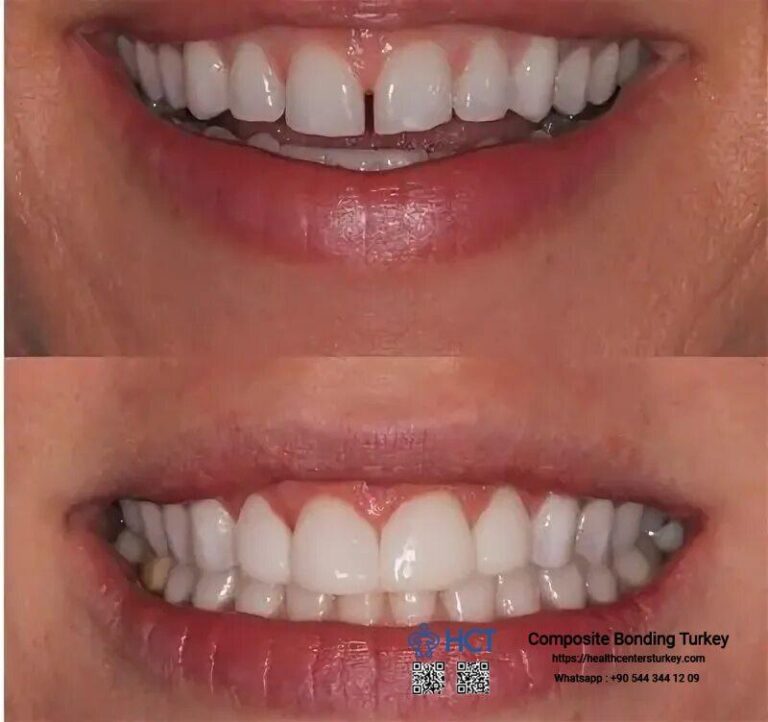Investigate Your Options for Tooth Replacement Solutions
Investigate Your Options for Tooth Replacement Solutions
Blog Article
Access World-Class Dental Services in Turkey
Dental implants have turn out to be a well-liked resolution for these looking to replace missing teeth. Understanding how these implants can affect adjacent teeth is important for anyone considering this process, as nicely as for dentists and specialists concerned in dental care.

One vital aspect is that dental implants are designed to be anchored into the jawbone, which means they're unbiased of adjacent teeth. Unlike dental bridges, which often require the alteration of neighboring teeth, implants can fill the hole without compromising the health or structure of these surrounding teeth.
This independence helps keep the integrity of adjacent teeth. When a tooth is lost, there can be a natural tendency for neighboring teeth to tilt or shift into the empty area. Such movement can result in misalignment, which may affect chew and overall oral health. By inserting an implant, you effectively prevent this potential shift, promoting higher alignment in the long term.
The Place for Quality Dental Care at Low Costs
Additionally, dental implants assist keep bone density within the jaw. A natural tooth root offers stimulation to the surrounding bone, maintaining it healthy and powerful. When a tooth is missing, the bone can begin to deteriorate due to lack of stimulation. With a dental implant mimicking a natural root, bone loss can be minimized, which not directly benefits adjacent teeth by preserving the general structure of the dental arch.
While dental implants are advantageous, improper placement can impression neighboring teeth. If an implant is positioned too close to a different tooth, it could exert undue stress on that tooth, leading to discomfort or potential harm. Proper planning and imaging techniques are important for avoiding such points.
Understand the Best Alternatives for Dental Care throughout Turkey
Moreover, maintaining good oral hygiene is essential after receiving an implant. If not properly cleaned, surrounding teeth may become prone to dental issues corresponding to decay or gum disease. This underscores the importance of diligent oral care following the process to ensure both implants and adjacent teeth remain healthy.
Regular dental check-ups are additionally important for monitoring the health of surrounding teeth. Dentists can establish any shifts or potential problems early, permitting for well timed interventions. This proactive approach ensures that each the implant and adjacent teeth can coexist with out problems.
Comprehensive Dental Packages Featuring Cosmetic Options
Another consideration is the impression of implants on bite pressure. When a single tooth is missing, the load of chewing could shift to adjacent teeth, doubtlessly leading to wear or pressure. Implants restore proper chew dynamics by redistributing forces within the mouth, which might protect surrounding teeth from undue stress.
Some patients might raise concerns concerning the appearance of dental implants. Well-placed implants can mix seamlessly with current teeth, improving overall aesthetics. In contrast, failing to exchange a missing tooth can result in aesthetic points, together with collapsing of facial structure and changes in smile dynamics.
It's also value discussing the psychological elements of dental health. Experiencing tooth loss can adversely affect one’s self-esteem and willingness to engage socially. By restoring your smile with implants, you'll have the ability to positively affect not solely your oral health but also your emotional well-being.
Long-term success of dental implants often hinges on various factors, including the patient's health, maintenance habits, and the quality click of the initial procedure. If adjacent teeth are healthy and properly cared for, the chances are they'll proceed to thrive alongside the implants.
Enhance One's Smile with State-of-the-Art Dental Solutions
In conclusion, dental implants play an important function in not just restoring individual smiles, but in preserving the health and structure of adjacent teeth. By preventing shifting, maintaining bone density, and redistributing chew forces, implants can make sure that surrounding teeth stay in optimum condition. Proper placement, hygiene, and common dental visits can additional improve the advantages of dental implants, resulting in a more healthy, extra assured smile for years to return.
- Dental implants might help keep the alignment of adjacent teeth by providing a secure anchor, preventing adjacent teeth from shifting into the gap left by a missing tooth.
- The presence of an implant might stimulate bone growth in the jaw, helping to protect the general structure and integrity of the adjacent teeth.
- Unlike conventional bridges, implants do not require alteration of surrounding teeth, thus preserving their strength and anatomy.
- Implants can enhance the distribution of chunk forces evenly throughout the dental arch, decreasing the stress on neighboring teeth during chewing.
- A well-integrated dental implant can lower the risk of bone loss within the space surrounding adjacent teeth, contributing to their long-term health and stability.
- The aesthetics of adjacent teeth could be improved because of the help provided by implants, which can result in higher general cosmetic outcomes.
- With correct placement, dental implants can prevent gum recession round adjacent teeth by maintaining adequate dental structure.
- Implants might help mitigate the risks of periodontal disease in nearby teeth by promoting wholesome gum tissue and providing a cleanable floor.
- Long-term success of dental implants can result in improved oral hygiene routines, which in turn advantages the health of surrounding teeth.
- The improved useful ability of an implant can encourage patients to chew extra successfully, thus growing saliva production and aiding within the protection of adjacent dental tissues.undefinedHow do dental implants affect adjacent teeth?
What are dental implants and the way do they interact with adjacent teeth?undefinedDental implants are artificial tooth roots that are surgically positioned into the jawbone. They provide a stable basis for replacement teeth while guaranteeing minimal disruption to adjacent teeth, preserving their integrity and alignment. Get Premium Implant Dentistry for Great Value.
Custom Smile Solutions in Turkey
Can dental implants cause problems for close by natural teeth?undefinedGenerally, dental implants do not hurt adjacent natural teeth. However, if the implant just isn't positioned appropriately or if there’s inadequate oral hygiene, it could lead to problems such as adjacent tooth decay or gum disease.

Will getting a dental implant change the greatest way my adjacent teeth feel?undefinedMost patients report no change in the sensation of adjacent teeth after implant placement. However, it may take a while to regulate to the presence of the implant, just like how one might adapt to other dental restorations.
Can dental implants help protect the health of adjacent teeth?undefinedYes, dental implants may help keep the health of adjacent teeth by preventing bone loss that can happen after tooth loss. This preservation helps the alignment of close by teeth, reducing the risk of shifting or misalignment.
Explore Complete Oral Procedures throughout Turkey
Do I need to change adjacent teeth when great site getting an implant?undefinedTypically, adjacent teeth don't need alteration when placing an implant. This is amongst the advantages of dental implants over conventional bridges, which regularly require reshaping adjacent teeth for help.
How does the healing strategy of an implant affect nearby teeth?undefinedThe healing course of includes osseointegration, where the implant fuses with the jawbone. During this time, adjacent teeth stay unaffected and retain their perform, though it’s important to comply with post-operative care recommendations. Premier Dental Clinics Specializing in Orthodontics in Turkey.
Transform Your Smile with Advanced Cosmetic Dentistry
Can dental implants result in bone loss around adjacent teeth?undefinedIf dental implants are placed correctly and cared for adequately, they need to not lead to bone loss round adjacent teeth. In fact, they may help stimulate bone growth, combating the natural bone loss that usually follows tooth extraction.
What precautions should I take to guard adjacent teeth after getting an implant?undefinedRoutine dental hygiene, including brushing and flossing, together with regular dental check-ups, is essential. Avoiding exhausting meals and following your dentist’s aftercare instructions may even defend both the implant and adjacent teeth.
Is it frequent for adjacent teeth to shift after an implant is placed?undefinedIt's not typical for adjacent teeth to shift after an implant placement, especially when the implant is placed correctly and maintained correctly. If there’s any movement, it might be because of different underlying issues that ought to be evaluated by a dental skilled. Report this page